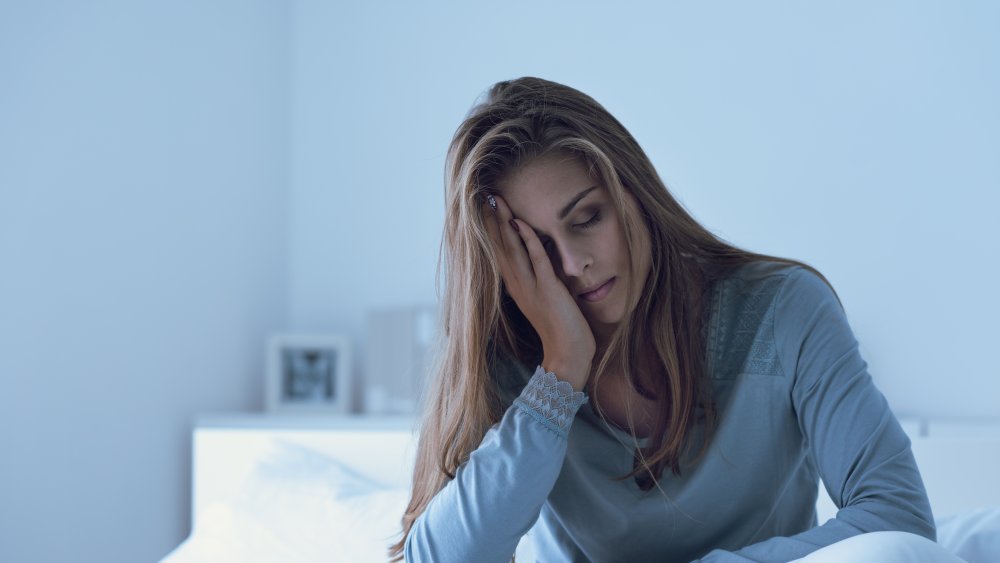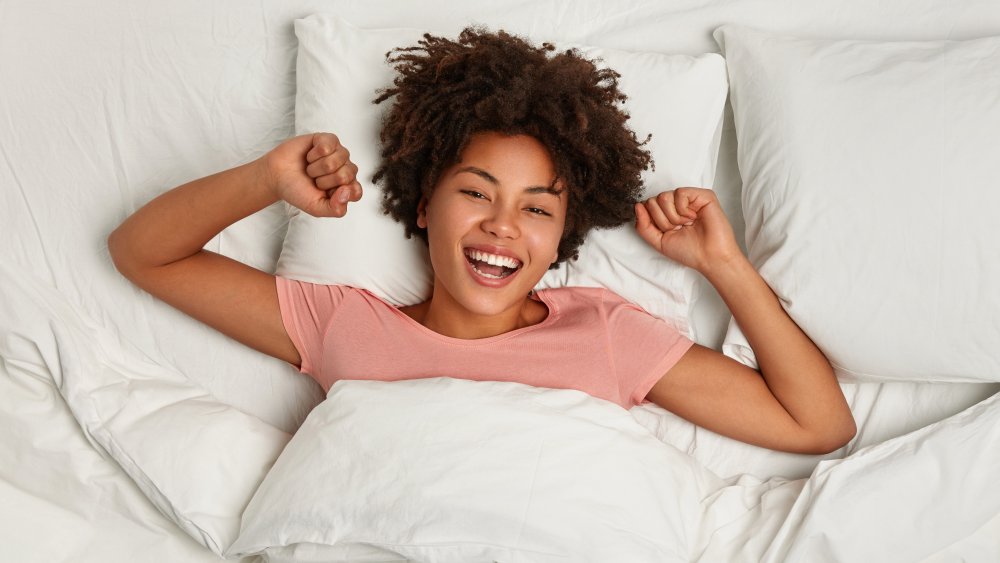The Unexpected Effect Poor Sleeping Habits Can Have On Your Health
If your bed has morphed into your part-time office as a result of the pandemic, it may be time to relocate to a quiet corner — turns out, good sleep hygiene is a must for keeping our weight in check. In a new study of 120,000 people published in JAMA Internal Medicine, researchers found a link between inadequate sleep and having a body mass index (BMI) of 30 or more, which is considered obese by the CDC (via CNN). And it didn't take much to see a difference: Participants with a BMI greater than 30 only had a sleep deficit of 15 minutes compared with the rest of the group, clocking in a little over six and a half hours of sleep.
"While we cannot determine the direction of association from our study result, these findings provide further support to the notion that sleep patterns are associated with weight management and overall health," the study authors wrote. Previous research has shown that sleep deprivation results in the release of the "hunger hormone" ghrelin, which stimulates appetite. This coincides with a dip in leptin, a hormone that typically suppresses the urge to eat. Between that and the endocannabinoid system, which regulates a host of bodily functions and can trigger "the munchies," skimping on sleep can literally add inches to your waistline.
"When you're sleep deprived, you're not like, 'Oh, you know what, I want some carrots,'" says behavioral neuroscientist Erin Hanlon, Ph.D., in a prior CNN interview. "You're craving sweets and salty and starchy things."
Here's how to get a good night's sleep
Exactly how much sleep you need depends on your age, according to the CDC, and can range anywhere from 7 hours to 9 hours a night between the ages of 18 and 64. To ensure you sleep through the night, the National Sleep Foundation recommends having a set wake time whether it's a weekday or weekend and then calculating your bedtime based on that so that you get into the rhythm of a consistent sleep pattern. A bedtime routine will also help, so budget about 30 to 60 minutes before hitting the hay so you have time to unplug from stimulating electronics, as these emit a blue light that can interfere with the production of the sleep-regulating hormone melatonin. Use the remaining time to focus on relaxing activities such as stretching, reading, or meditating to help you unwind.
Of course, watching what you eat will also keep off the pounds — and help you sleep better. "We know that certain foods that we consume can interfere with sleep," says Carl E. Hunt, M.D., former director of the National Center on Sleep Disorders Research at the National Institutes of Health (via WebMD). "The most obvious one in terms of stimulating wakefulness would be caffeine." Also watch out for spicy or acidic foods too close to bedtime as lying down can make heartburn from these foods worse and prevent you from getting peaceful shuteye.


